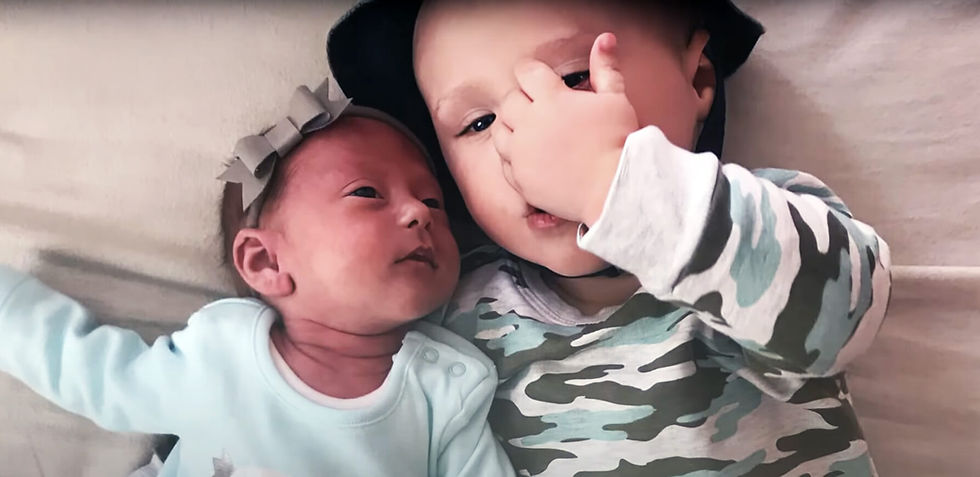Impacts

For years, Quezette and Tian Oosthuizen searched for answers to their children’s unexplained health challenges.
The Oosthuizens’ Journey from Mystery to Diagnosis
For Quezette and Tian Oosthuizen, parenthood began with joy, but it was soon overshadowed by unanswered questions. During her pregnancy with their first child, Wian, Quezette noticed subtle signs, reduced foetal movement, slower-than-expected growth. When Wian was born prematurely, his developmental milestones lagged, his breathing was irregular, and he gained weight slowly. Despite endless visits to doctors and specialists, no diagnosis followed.
Years passed, filled with frustration and confusion. Then came the birth of their daughter, Lumé, and the worrying signs began to repeat. The same mystery, the same absence of clear answers. The Oosthuizens were left navigating a maze of medical opinions and inconclusive tests.
It was only when the family was referred for genetic testing that the puzzle started to come together. Using whole exome sequencing, doctors finally arrived at a diagnosis: Infantile hypotonia–psychomotor retardation–characteristic facies type II - an ultra-rare genetic disorder that affects motor function and development. While there is currently no cure, the diagnosis brought relief, clarity, and direction.
“We finally had a name. We finally knew what we were dealing with,” said Quezette.
This diagnostic breakthrough was made possible through South Africa’s growing genomics infrastructure, supported by DIPLOMICS and powered by the Nngwe project.
Nngwe: Changing the Game for Rare Disease Diagnosis
Rare diseases, although individually uncommon, collectively affect millions. In South Africa, at least 1 to 2% of the population is affected by a rare disease, a figure that exceeds the total number of tuberculosis cases in the country. Approximately 80% of rare diseases have a genetic basis, making genomic sequencing a vital tool for diagnosis.
Nngwe is a national initiative by DIPLOMICS aimed at transforming rare disease diagnosis in South Africa. It facilitates collaboration across disciplines and institutions, providing the tools and data infrastructure required to decode even the rarest of conditions. As Prof. Chris Vorster, Nngwe’s director, puts it: “We’re creating a diagnostic pipeline that prioritises patient outcomes. It’s about putting the patient first.”
With support from the Department of Science and Innovation, Nngwe is building a national database and sequencing capability that connects clinical researchers, geneticists, and healthcare providers. This collaborative model means children like Wian and Lumé won’t have to wait years for answers in the future.
For the Oosthuizens, the diagnosis is not the end of the journey, but it’s a beginning rooted in understanding and empowerment.
“We know what we’re facing. We know how to support our children. That’s more than we had for years,” said Tian.
Are you working in rare disease research or clinical genetics?
Join the Nngwe movement and help bring faster, more equitable diagnosis to all patients in South Africa. Learn more: nngwe.org.za

Diagnosing the Impossible: The Oosthuizen Family's Rare Disease Journey
03 Mar 2025
Diagnosing the Impossible: The Oosthuizen Family's Rare Disease Journey
25/03/03, 22:00